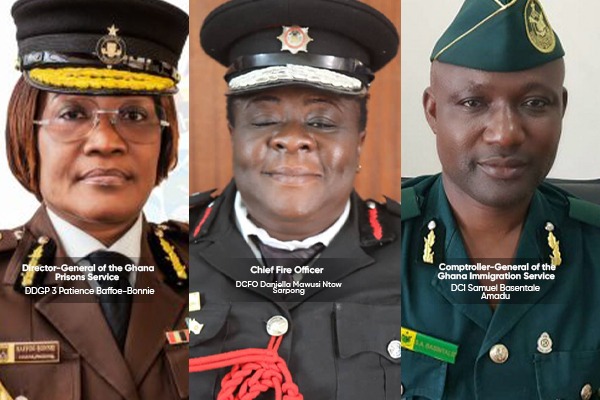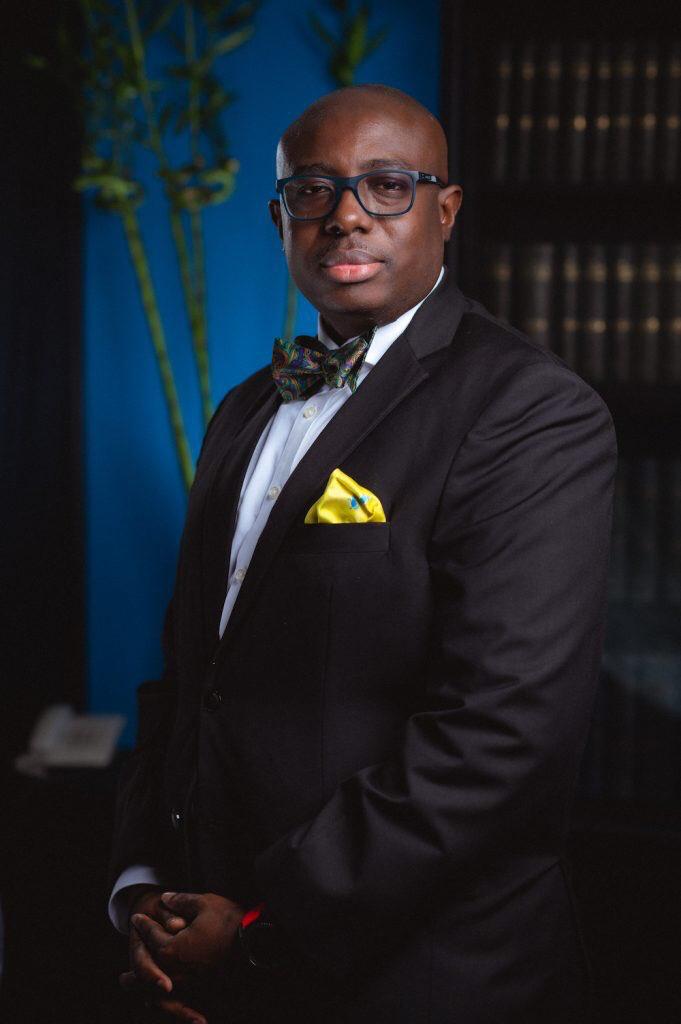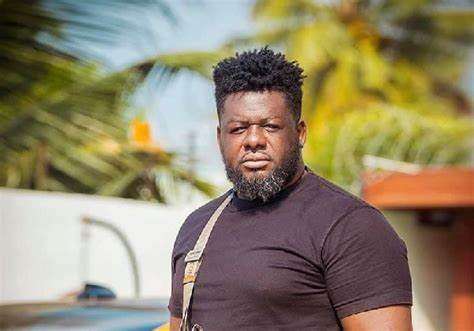Renowned legal practitioner and activist, Osagyefo Mawuse Oliver Barker-Vormawor, has reignited discussions on the institutional independence of Ghana’s security agencies, calling for a comprehensive review of the constitutional framework governing them.
His remarks come amid growing public debate following President John Dramani Mahama’s appointment of Commissioner of Police (COP) Christian Tetteh Yohuno to replace COP Dr. George Akuffo-Dampare as Inspector General of Police (IGP), alongside the appointment of new security chiefs for the Ghana Fire Service, Ghana Immigration Service, and Ghana Prison Service.
In a statement, Barker-Vormawor urged that the discourse around the IGP and other security leadership transitions should move beyond personal cases and focus on the broader policy issues at play.
“Now, let’s redial back the IGP conversation to policy. No more neck pressing. Let me do what I do best. The Constitution Review Commission as far back as 2011 provided a clear framework for how to make the security agencies more independent; that has since 2011 gathered dust.”.
Osagyefo Mawuse Oliver Barker-Vormawor, Legal Practitioner and Activist
Constitutional Reforms Gathering Dust
Barker-Vormawor, however, argued that these recommendations have been largely ignored by successive governments.
He noted that the issue extends beyond merely securing the tenure of a single individual, such as the IGP, but requires a deep-seated reform of the institutional structure governing security services.
He argued that limiting the conversation to protecting the tenure of individual officers, such as Dampare, risks missing the larger and more pressing issue of comprehensive institutional autonomy.

Barker-Vormawor pointed out that Ghana’s security framework contains a fundamental design flaw that needs urgent attention.
He emphasized that genuine security sector reform should not only focus on the security of tenure for leadership positions
For him, any reform must also ensure a depoliticized and independent institutional framework that safeguards the operational effectiveness of security agencies beyond the influence of any sitting government.

The Need for a Broader Perspective
The legal practitioner, who was a Research Assistant to the 2011 Constitutional Review Committee, also referenced Clement Kojo Akapame, a key figure who played a pivotal role in drafting the CRC’s chapter on security, as someone with in-depth knowledge on the issue.
“My colleague who led the engagements and held the pen on the draft of CRC’s chapter on security is Kojo Akapame. If you wake him up from his sleep, he will give 1000 ideas about how we proceed from here and what the solutions are—what the history has been since even colonial periods,”
Osagyefo Mawuse Oliver Barker-Vormawor, Legal Practitioner and Activist
Barker-Vormawor suggested that experts like Akapame should be consulted for sustainable policy solutions.

He further argued that Ghana’s constitutional framework needs a complete rethinking, as it has inherent defects that perpetuate political interference in security appointments.
“We can’t pretend that our constitutional framework doesn’t have a design flaw! The issue must and needs a wholistic constitutional rethink”.
Osagyefo Mawuse Oliver Barker-Vormawor, Legal Practitioner and Activist
The ongoing debate around security appointments is not a new one. Political transitions in Ghana have often been accompanied by the removal and replacement of security chiefs, a practice many believe weakens institutional continuity and stability.
Critics argue that such removals are frequently politically motivated, rather than being based on professional merit or performance.
In 2023, the IMANI Centre for Policy and Education, in collaboration with Professor Kwesi Anning, filed a suit at the Supreme Court seeking constitutional clarity on whether a new President has the authority to remove security heads before their statutory retirement age.
The suit seeks to challenge the longstanding practice of politicising security leadership positions, a move many believe is essential for strengthening Ghana’s democratic institutions. The Supreme Court has set May 17, 2025 for its ruling on the matter.
Barker-Vormawor’s remarks have added fresh momentum to this conversation, calling for a shift from ad-hoc debates centered around individual appointments to a more structured national discourse on security sector reforms.
He stressed that without a holistic constitutional review, Ghana’s security agencies will continue to be vulnerable to political manipulation, compromising their effectiveness and public trust.
He emphasized that the 2011 Constitution Review Commission’s recommendations provide a starting point for this process, hoping the recent Constitutional Review Committee set up by President Mahama would consider such proposals to ensure meaningful reforms.
Barker-Vormawor’s advocacy highlights the urgent need for political will in implementing these long-overdue changes.
His call for constitutional restructuring aligns with broader demands for institutional reforms across various sectors of governance in Ghana.
READ ALSO: ACEP Welcomes MIIF Act Amendments, Cautions on GSL



















